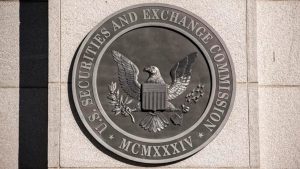Morgan Creek CEO Says FTX Co-Founder SBF Was a ‘Pawn’ Used to ‘Punish’ the Crypto Industry – Regulation Bitcoin News

Following FTX’s collapse, many industry executives, influencers, luminaries, and politicians have shared their opinions about the carnage the event has caused to crypto markets and a great deal of innocent bystanders. On Dec. 2, the CEO and founder of Morgan Creek Capital, Mark Yusko, explained in an interview that it’s quite possible that the FTX co-founder Sam Bankman-Fried (SBF) was merely a “pawn” or “useful idiot” leveraged to “punish the industry.”
Morgan Creek’s Mark Yusko: ‘This Debacle Is a Fraud Perpetrated by, I Believe, Someone Above the Useful Idiots’
Since the Terra LUNA fallout and the great number of business failures that followed the event, there’s been a myriad of theories surrounding these subjects. The most recent FTX collapse seems to eclipse all the blunders that took place after the Terra crash, and there are still many unanswered questions surrounding the event. A variety of individuals have shared their two cents about the FTX fiasco, including the host of CNBC’s Mad Money show, Jim Cramer, Galaxy Digital’s CEO Mike Novogratz, Congresswoman Maxine Waters (D-CA), and Tesla’s CEO and Twitter chief, Elon Musk.
On Friday, Mark Yusko, the CEO and founder of Morgan Creek Capital Management, told Kitco’s lead anchor and editor-in-chief Michelle Makori that Sam Bankman-Fried (SBF) was a “pawn.” “They are just pawns in a very large, very elaborate system that was designed to do money laundering,” Yusko told Kitco’s lead anchor. “It is certainly possible that there was an intent by someone to have this be an example set so that regulators could come in and punish the industry,” he added. Yusko explained to Makori that decentralized finance, also known as defi, threatens traditional finance.
Unlike traditional finance, which is typically controlled by large banks and financial institutions, defi is decentralized, meaning that it is not controlled by any single entity. Bitcoin (BTC) and defi challenges concepts like fiat currency and central planning, Yusko informed the Kitco broadcast host. Yusko and many crypto proponents believe defi offers a number of benefits, including greater accessibility, transparency, and security. “[Blockchain] replaces trust with truth,” Yusko explained to Makori.
“Who are the arbiters of trust today? Financial institutions, third-party middle people, a $7 trillion industry,” Yusko elaborated. “They would like to not be disrupted by defi and digital assets. It is possible that some group of incumbents might have tried to lobby for regulation to delay, obfuscate or change the course of this disruption.”
Yusko also pointed out that it’s possible “someone above” SBF or Alameda Research’s Caroline Ellison worked to achieve a common goal, at the expense of the crypto industry. “This debacle is a fraud perpetrated by, I believe, someone above the useful idiots. Those two are not playing 10D chess,” the Morgan Creek CEO expounded. “Very large sums of money went to political candidates. There is evidence of [Sam Bankman-Fried] saying that he was going to give $1 billion in the next election,” Yusko added.
Yusko is extremely bullish on bitcoin (BTC) and in a May 6, 2020 interview, the Morgan Creek CEO said he expected the leading crypto asset to tap $250,000 in five years. During the discussion, Yusko also opined that bitcoin’s price could reach $400K to $500K as well. During his interview with Makori, Yusko noted that the U.S. could risk becoming stagnant if it over-regulates the industry. “If we become overly onerous regulatorily, [crypto] will just pop up in other jurisdictions,” Yusko said. “So, ultimately, [crypto] will win.”
What do you think about Mark Yusko’s opinion regarding FTX execs being pawns? Let us know what you think about this subject in the comments section below.
Image Credits: Shutterstock, Pixabay, Wiki Commons
Disclaimer: This article is for informational purposes only. It is not a direct offer or solicitation of an offer to buy or sell, or a recommendation or endorsement of any products, services, or companies. Bitcoin.com does not provide investment, tax, legal, or accounting advice. Neither the company nor the author is responsible, directly or indirectly, for any damage or loss caused or alleged to be caused by or in connection with the use of or reliance on any content, goods or services mentioned in this article.














